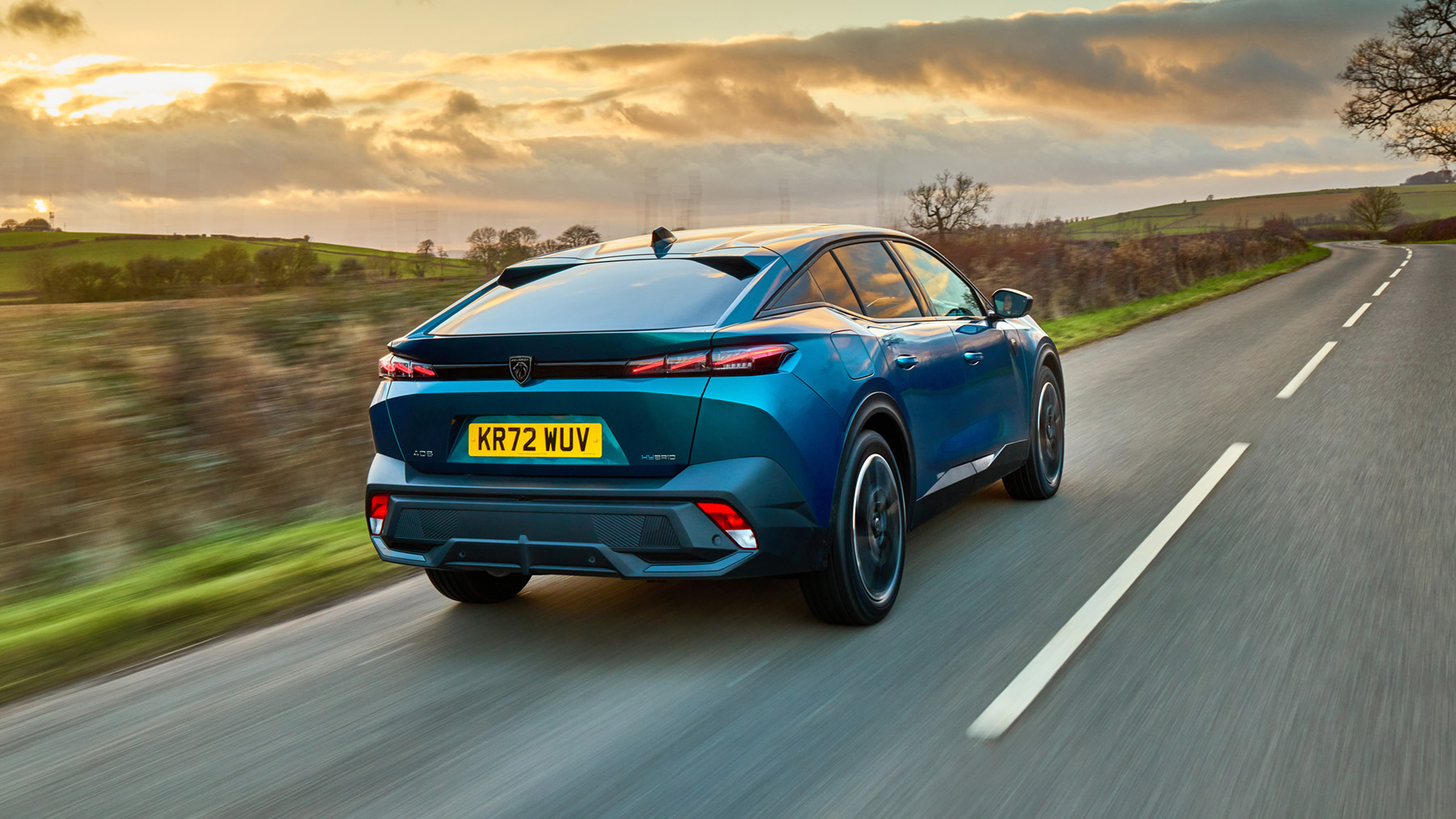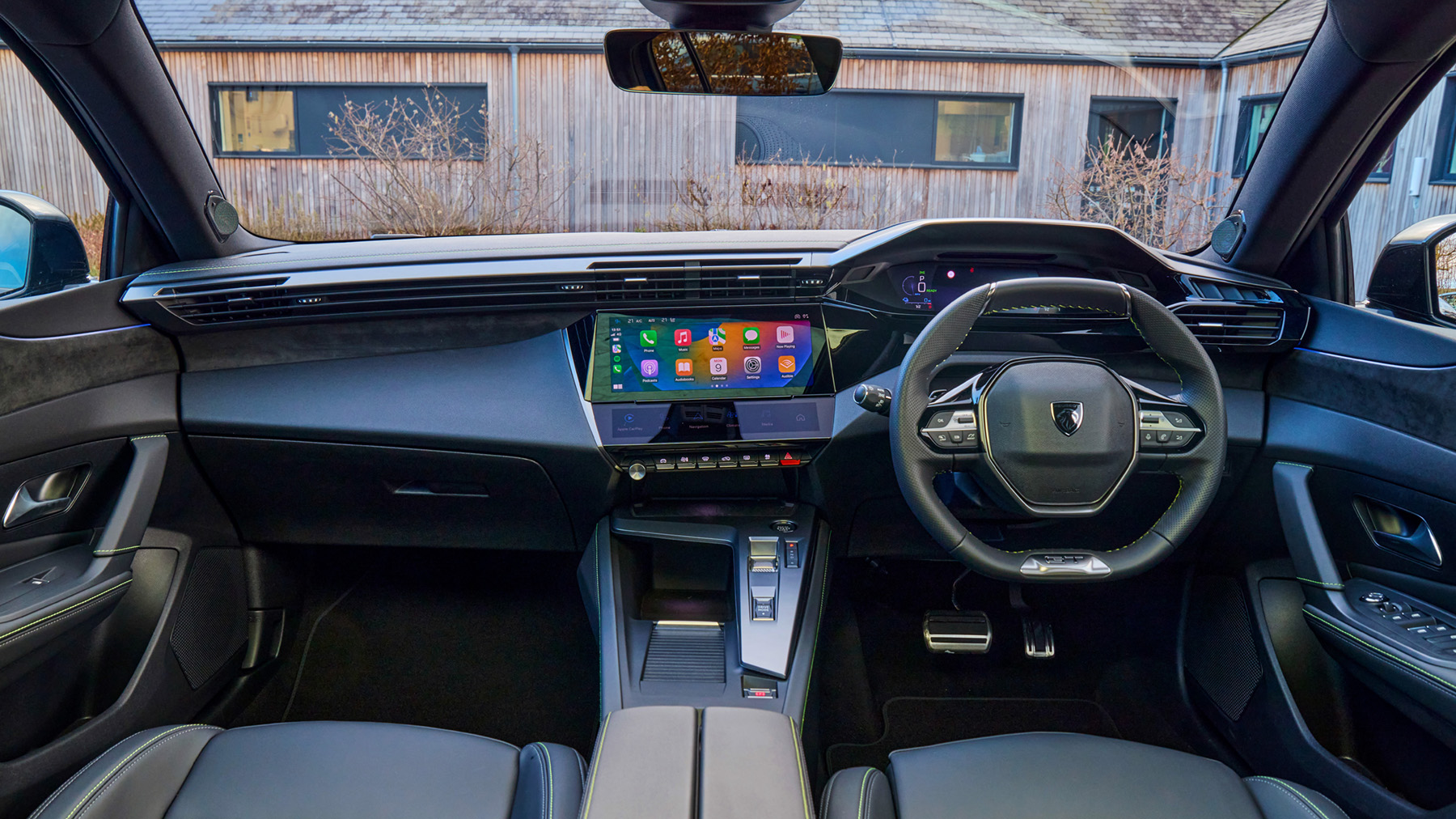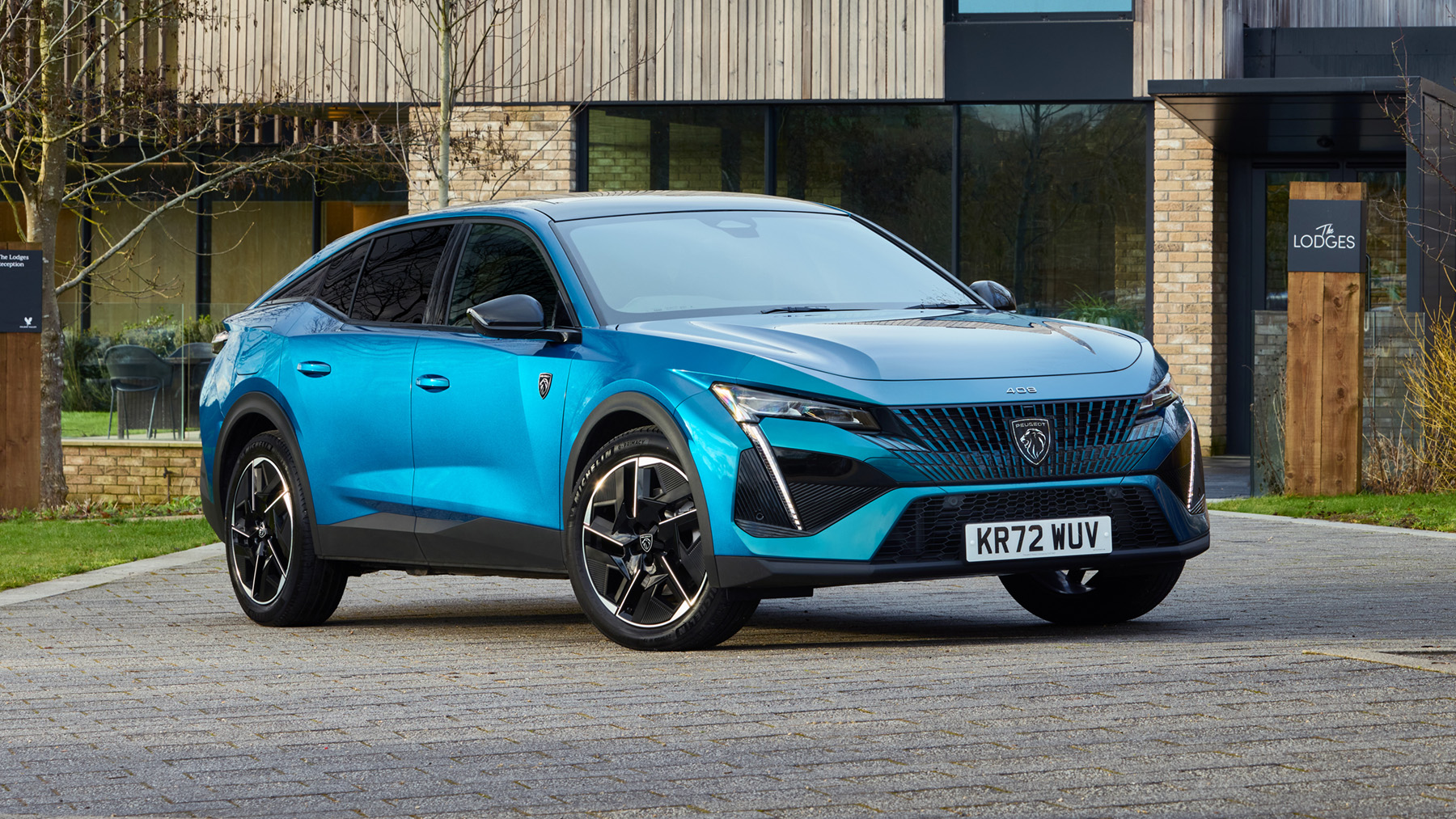
Interior
What is it like on the inside?
The relationship between seat, wheel and instruments is significant in modern Peugeots, so we've talked about it over on the Driving tab. The dials themselves are pretty clear, but you're mostly relying on digital readouts; the circular graphics don't actually give more than a vague hint of how fast speed is rising or falling. On the hybrid, though, the power-regen dial is more useful.
Top-spec 408s have Peugeot's '3D' cluster, where a second transparent screen is overlaid a couple of centimetres closer to your eyes than the main one, giving a visual depth that clarifies the graphics.
What about the touchscreen infotainment?
The main centre screen has the usual reconfigurable tiles. But Peugeot also has a screen to control the screen: a shallow wide touch bar where you can add shortcuts to the menus you use most. Volkswagen could learn a thing or two here.
The system could go further (there were a couple of things like audio settings or heated seats where we wanted a direct link but it only offered one level up) but it is undoubtedly helpful for keeping your eyes on the road for longer, as are physical climate and driver-assist keys below that.
Does it feel cheap inside?
The 408 manages its high wire balancing act quite well – it doesn’t feel cheap, but it doesn’t feel premium. It’s a style-led compromise that doesn’t leave you feeling short-changed.
There’s good use of expensive-feeling trim materials where it counts – seats, door pulls, the top of the dash – so it feels a smart cabin, and disguises the cheaper slabs of plastic elsewhere. The buttons have a nice clicky action too, including the ones on the steering wheel.
Is there a decent amount of room?
The 408 might be pitched below the 508 but the cabin certainly feels more spacious. The front seats are well bolstered and offer plenty of adjustment – the optional massage seats in the top spec cars are nice, too.
The rear bench is shaped for two. The poor fifth adult is squeezed between a raised hump in the middle of the seat and the falling roof line, while the outer passengers will get pushed outwards where they’ll hit their heads on the tops of the window apertures. But rear leg room is lovely.
Behind that, in the base petrol you get 536/1,611 litres seats up/down in the boot compared to 471/1,545 litres seats down in the hybrid, which is noticeably shallower on account of the battery. That compares to 361/412 litres in the petrol/hybrid 308, and 487 litres in the 508, which gets the same sized boot both petrol and plug-in hybrid.
Featured

Trending this week
- Car Review
BMW 1 Series
- Top Gear's Top 9
Nine dreadful bits of 'homeware' made by carmakers






